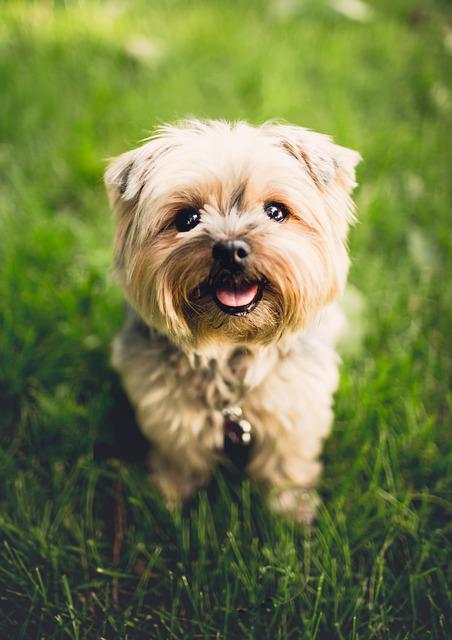
Lots of dogs go to shelters simply because their owners become disappointed in them, though this does not need to be the case. It is possible for a dog that is trained well to become a healthy, happy, and well-adjusted family member. Transforming a dog into this type of companion can actually be easy, as long as you spend the effort and time necessary.
Control how much you reward your dog. If your dog follows a training command properly, then it is acceptable to reward the behavior to a calm animal. You might be happy about the progress your dog has made but you need to quell your excitment. If you are able to maintain your calm, you can expect your dog to maintain calm too.
Training should be completed in small spurts. Since dogs do not have a long attention span, making sure training sessions are kept short ensures that your dog will not dread them. Allow you dog a break every fifteen and then resume training if desired.
Primary Reinforcement
When you are training your doggy friend, use what is known as primary reinforcement. Primary reinforcement uses something that is inherent for the dog to love as a reward for good behavior. Use things such as treats or petting your dog to reinforce good behavior. The best rewards are things your dog already likes and wants.
Dogs are just like people; they love hearing the sound of their own names and the use of the name will call them to attention. Use the name often, especially during the first weeks at home; the puppy should associate his name with focusing on you. It’s best to stick with shorter names, one’s that are distinguishable from other words.
Use a steady and commanding tone when speaking to your dog. Dogs tend to be well in tune with how their trainers are feeling. Talking sternly is a good tone when you are teaching discipline.
Effective canine training requires instilling good behaviors from day one. Bad habits are hard to break, so start training your dog early. To avoid begging at the table, avoid giving the dog food off the table to begin with.
If you use a leash to train your dog, keep it loose. When dogs are going for a walk, they will often want to check out new territory. Excited pups tend to place some strain on the limitations of the leash. Teach your dog to relax and let them get used to walking along on a slack leash.
One thing to remember when puppy training is that all your actions are molding its behavior and personality. You might be reinforcing bad behaviors without even realizing it, for instance by playing with your dog or by acknowledging its barking. Mold your dog into the pet you want by constantly working towards the behavior you desire.
If you say your dog’s name in reprimand, remember to also say it several times in praise to counteract the negative effect. This ensures your dog doesn’t associate his name with punishments, meaning he’ll come when you call him in future.
It is best to nip unwanted chewing in the act by catching him doing it and dealing with it immediately. Switch out the inappropriate object for an item that belongs to your puppy to allow him to realize what is and is not okay.
A dog being afraid is the number one reason he will bite someone. When a dog feel threatened, scared or trapped, it may bite. Train your dog with praise and discipline, not physical force. This could result in you being bitten. Your dog will view you as his leader, and he will seek to please you.
Your dog shouldn’t be leading you. You lead the dog, he does not lead you. When starting obedience training, utilize a training collar along with a short leash, and be sure to heel your dog when you walk and go through gates and doors ahead of the dog. Keep in mind you’re leading.
You must consistently dedicate time to canine training. Dogs need consistency and repetition to learn. Also, just spending time with the dog daily is a great way to engender confidence and true friendship. The dog will see you as a leader if you appear reliable.
Dogs who have something to do tend not to get into trouble, such as eating out of the trash can. Avoid letting your trash build up, and don’t fill it with tantalizing scraps that might catch your dog’s attention. Make sure your dog is crated whenever you leave the house, or else empty out our trash.
Always reinforce positive behavior in your dog. Don’t yell and punish the dog for bad behavior. Just avoid reinforcing negative behavior. If you punish the bad behaviors, your dog can end up terrified of you. When you give positive reinforcement, your dog will crave it.
As discussed in this guide, having a healthy and happy dog is not hard to have. You need to show him love, cater to his needs and train him properly. Apply the tips you’ve just read so your dog remains well-behaved at all times.